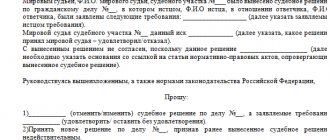3
Family relationships are one of the main components of society. And yet sometimes the union between two people breaks down. At the same time, the main task of parents is not to violate the interests and creation of the most comfortable conditions for the life of their children, regardless of the fact of separation or divorce. A parent who leaves the family does not lose the obligation to conscientiously fulfill his parental duty.
In cases of voluntary consent of a parent who does not live with the child to pay alimony, an agreement is concluded between him and the second spouse. The agreement reached is confirmed in writing and additionally certified by a notary. A general agreement on the maintenance, upbringing and place of residence of the child can also be concluded.
The concept of alimony agreement
The agreement on the payment of alimony is of a civil nature. This agreement is concluded by parents to resolve the issue of financial support for their common children. The conditions, procedure, and methods of fulfilling alimony obligations are governed by an agreement on the basis of Art. 104 of the Family Code.
In accordance with the provisions of Article 100 of the family law, such an agreement must be concluded in writing, in the presence of a notary. After the conclusion, it must be certified.
When certifying a document, the notary checks:
- The legal capacity of the parties to the agreement;
- Lack of coercion and meaningful will of the parties;
- Absence of conditions that are deliberately enslaving or violative of the interests of the child or any of the parents.
In most cases, a child support agreement is concluded for a long time (usually until the child reaches adulthood), and early termination often occurs.
IMPORTANT: According to the agreement, the child cannot receive less funds than would be due to him by law. Otherwise, the document may be challenged in court.
Invalidity of the agreement
The alimony agreement will be invalidated if the following situations occur:
- when diagnosing mental illness in one of the parents;
- when threats and violence are used against one of the parties to the agreement;
- if the document was signed while under the influence of alcohol or drugs, and so on.
Parents should not confuse the annulment of a child support agreement with its invalidation. In the first case, it ceases to be valid from the moment a court decision is made or the relevant document is executed. In the second case, the execution of the agreement is illegal. According to such a document, the collection of alimony is prohibited.
How to terminate an alimony agreement?
The contract is amended or terminated in cases where the financial or family status of one or both parents changes significantly. If agreement on a change in the agreement cannot be reached, it must be terminated.
Grounds for termination may include:
- Significant change in the level of income of the alimony holder.
- Improvement or deterioration in the financial level of the alimony recipient;
- Change in the marital status of one of the former spouses (For example, the creation of a new family by the payer and the birth of other children).
A significant change in the income of the alimony provider is considered to be cases when a person is unable to pay the agreed amount of alimony after losing his job, due to health reasons, or, on the contrary, his financial capabilities have increased. A change in the financial condition of the recipient should be understood as situations in which, due to unforeseen circumstances, larger sums must be spent on the maintenance of the child (For example, the child’s illness).
The child’s parents can terminate the agreement in two main ways:
- Voluntarily, by visiting a notary and canceling the concluded agreement;
- Through the court at the request of one of the interested parties.
Also, if the cause of the conflict is one or more conditions, the agreement can be changed in court and will continue to be valid in relation to the remaining conditions.
Crib
- If you or the other party to the alimony agreement has experienced a significant change in their financial or family situation, each party has the right to raise the issue of changing or terminating the previously concluded agreement.
- A written proposal to amend/terminate the alimony deed is submitted in person against signature or by mail with acknowledgment of delivery and an inventory of the contents.
- The party receiving such a proposal must respond to it within the period established by the alimony agreement, and in its absence, within the period specified in the proposal itself. If the urgency of providing a response is not indicated anywhere, then the recipient is given 30 days to respond.
- If a positive response is received, an amendment/termination agreement is drawn up. It requires subsequent notarization.
- If a refusal is received within the specified period or the proposal is simply ignored and there is written or other confirmation of this, you have the right to apply to the court to protect your interests. For these purposes, a corresponding statement of claim is drawn up and submitted.
- In a situation where a settlement agreement approved by the court has been concluded, it is impossible to subsequently change or terminate this act.
- It is impossible to unilaterally refuse to fulfill alimony obligations enshrined in a notarial or settlement agreement.
Have any of your friends ever terminated or changed their alimony agreement? If so, what method did they use to do this?
Termination procedure and procedure
If the parents decide at the meeting that starting from today there is no need to pay child support, the obligations to finance the children do not disappear. That is, an oral agreement is not a sufficient basis for terminating or changing the agreement.
All transactions with the agreement related to changes, editing or cancellation of its validity are carried out only in writing. A prerequisite is the presence of a notary in the event of a voluntary decision. If there is no consensus between the parents, termination of the notarial agreement on alimony will be permissible only through the court.
Voluntary termination
The procedure for terminating an agreement on alimony payments is formal and is possible subject to specific conditions:
- The child support agreement is terminated at the request of the parents at any time, provided that the necessary conditions are met.
- Since to conclude such agreements it is necessary to have them certified by a notary, termination follows the same principle.
- The agreement is terminated only in cases of mutual consent of the parents. Unilateral termination of the contract by only one participant is prohibited.
The parties may at their own discretion cancel the agreement if possible and necessary. In this case, one participant refuses to receive child support, and the second is relieved of the burden of paying it.
If alimony was paid from the father’s salary, then after receiving a notarized document on the termination of the previously reached agreement, it must be provided to the employer of the former payer to cancel the deductions from the salary.
Through the court
If the ex-husband and wife cannot agree to change the provisions of the alimony agreement or terminate it, either party may file a claim with the courts.
Typically, the initiator of legal proceedings is the recipient of financial support if the alimony provider refuses to fulfill his duties, or the payer himself, who, due to circumstances, cannot make payments in the amounts specified in the agreement.
Less often, the plaintiff is the payer who sought a reduction or increase in the amount of alimony, but was refused.
The most common reasons for termination of alimony by the payer:
- loss of work and, accordingly, income;
- the birth and need to support other children;
- serious illness of the child support worker;
- health problems among family members of the payer.
The consideration of such cases in court is open and adversarial. The parties are obliged to explain to the court their point of view and requirements, supporting them with evidence.
IMPORTANT: Before starting litigation, it is recommended to send the second party a written proposal to terminate the contract. In this case, you must indicate the reason for termination of the contract and indicate a specific deadline for the response. If no deadlines are specified, the response must arrive within thirty days. The best option is to send an offer by registered letter with notification.
This will allow you to avoid unnecessary questions in court, especially if the alimony agreement specifically states the procedure for terminating the agreement. Failure to comply with the pre-trial procedure for terminating the contract may serve as grounds for returning the statement of claim.
Jurisdiction
In the first instance, the magistrate's court deals with cases of termination of agreements on the payment of child support. When considering the case, the court takes into account the financial interests of the children. Termination of the contract is not grounds for the payer to lose the obligation to support the child.
At the request of the second party, he is assigned a different type of payment - in shares of all types of earnings or a fixed amount, in a fixed sum of money.
In this case, the court may reduce the amount of financial obligations to those specified by law. Often, when collecting alimony according to the law, the amount is an order of magnitude less, especially when the payer is required to pay the minimum alimony.
Geographically, the claim is filed at the plaintiff’s place of residence if a minor child lives with him. The application can also be submitted at the respondent’s place of residence, at the discretion of the applicant.
Is it possible to change, terminate, or invalidate an alimony agreement?
A notarial alimony agreement can be changed or terminated by mutual consent of the parties in a manner similar to its conclusion. This is done by contacting both parties to a notary to edit a previously certified document and certify it in a new edition - clause 2 of Art. 101 IC RF.
The number of changes and the timing of introduction are not limited by law.
It is permissible to change or terminate such a document in the absence of the consent of the other party only in court and only if there are legal grounds for this - clause 4 of Art. 101 IC RF.
But it can only be declared invalid (challenged) through the courts. The general norms of the Civil Code of the Russian Federation, regulating the invalidation and termination of civil law transactions, apply to a notarial alimony agreement - Art. 101 IC RF.
According to the general norms of civil law, invalid transactions are of two main types - clause 1 of Art. 166 Civil Code of the Russian Federation:
- Recognized as such by a court on relevant legal grounds (disputable).
- Independent of such recognition (negligible).
In the latter case, it is necessary to go to court with a demand to apply the consequences of the nullity of the transaction - clause 3 of Art. 166 of the Civil Code of the Russian Federation.
In both cases, the presence of circumstances that serve as legal grounds for the court to invalidate the alimony agreement is required. These include the grounds provided for:
- Civil legislation for the invalidity of transactions is § 2 of the Civil Code of the Russian Federation.
- Family law for the invalidity of agreements that violate the interests of the recipient of alimony - Art. 102 RF IC.
Such an agreement is recognized by the court as invalid in whole or in part on the grounds provided for in § 2 of the Civil Code of the Russian Federation, which include:
- Confinement with an incompetent person - Art. 171 Civil Code of the Russian Federation. Only his legal representatives can act as a party - Art. 99 RF IC.
- Signing the document in question with a partially capable person without the consent of his trustees - Art. 176 of the Civil Code of the Russian Federation and Art. 99 RF IC.
- Drawing up an act under the influence of deception, mental or physical violence, threats or unfavorable factors - Art. 179 of the Civil Code of the Russian Federation.
- Pretense, imaginary nature of the relevant legal relations - Art. 170 Civil Code of the Russian Federation.
This becomes possible if the conditions for providing maintenance to a child under 18 years of age significantly violate his interests - Art. 102 RF IC. For example, the amount of alimony determined by the parties is less than the alimony payments that he could receive if they were collected through the court - para. 2 clause 56 of the RF Armed Forces Resolution No. 56.
The following people also have the right to go to court to challenge the alimony agreement:
- Legal representatives of a minor child (parents, guardians, trustees).
- Guardianship and trusteeship authorities.
- Prosecutor.
What are the grounds for changing or terminating the alimony agreement?
The legal conditions for changing/terminating the alimony agreement (if there is a dispute) include:
- Significant change for the worse in the financial situation of the payer.
- The appearance or presence of other family members as dependents of the person obligated for alimony.
- Other circumstances worthy of the court's attention.
At the same time, a change in the financial/material situation of the parties is recognized by the court as significant if it has changed so much that if it had been such at the time of the conclusion of the act, it would not have been concluded - clause 55 of the RF Supreme Court No. 56. Because otherwise:
- It would significantly violate the interests of the participants.
- The parties entered into it on vastly different terms.
The key basis here is also the confirmed fact of the impossibility of agreeing with the other party on changing or terminating the existing alimony agreement - para. 2 p. 54 PP RF Armed Forces 56.
A dispute regarding the amendment/termination of a notarial agreement is considered by the court on its merits only when the plaintiff presents evidence of his taking measures to resolve the dispute with the defendant. This rule applies to all civil contracts - clause 2 of Art. 452 of the Civil Code of the Russian Federation.
This paragraph states that a participant has the right to file a demand to change/terminate an existing agreement in court only in the following cases:
- After receiving the refusal of the other party to the proposal to change/terminate the contract.
- If a response is not received within the period specified in the proposal or established by law or contract, and in its absence - within 30 days.
If the plaintiff does not provide the specified evidence, the judge returns the claim - para. 3 p. 54 PP RF Armed Forces No. 56. And if a civil case has already been initiated, it leaves the application without consideration in accordance with paragraph. 2 tbsp. 222 Code of Civil Procedure of the Russian Federation. That is, you will still have to first contact the party to the alimony agreement: the recipient or the payer, respectively.
The proposal to change or terminate the alimony agreement sent to the other party does not have any legally prescribed form. It is compiled in any order and may look like this:
Proposal template
(19 KB DOC)
If the proposal you sent was answered in the affirmative, that is, they agreed to the terms you proposed, then a new agreement is drawn up: accordingly, on the amendment or termination of the previously concluded document. This act must also be certified by a notary - Art. 101 IC RF.
How much do you have to pay a notary?
The Federal Chamber of Notaries annually sets maximum fees for the provision of legal and technical services by notaries for each subject of the Russian Federation. After which it publishes on its official website information about the maximum fees for the provision of the listed services by notaries, as well as the specific amounts of such fees in each region for the current year - Art. 30 Fundamentals of the legislation of the Russian Federation on notaries.
Example of notary fees in St. Petersburg
What are the consequences of terminating the agreement?
For the parties to the alimony agreement, its cancellation entails the following legal consequences:
- The terms of the previously drawn up act cease to apply.
- The rights and obligations established by him cease.
- The debt formed up to this point is not cancelled, unless otherwise established by agreement of the parties or the court.
- Previously paid funds are not refundable. An exception is the case where the agreement is declared void.
- In order to compensate for losses incurred, the payer has the right to file a new claim in court.
Claim for termination of alimony payment agreement (sample)
The general requirements for the statement of claim are reflected in Art. 131-132 Code of Civil Procedure of the Russian Federation. The law does not contain any separate provisions regulating the preparation of claims of this particular type.
Adhering to the general requirements of the law, the application must indicate the following information:
- Full name of the court, its address;
- Information about the participants in the process: full name, registration address and actual location. You can also specify contacts;
- Indication of the name of the claim;
- Description of the essence of the case: when the child was born, why alimony was withheld by agreement;
- Indication of information about the agreement: when it was concluded, general conditions, conflict conditions;
- Information about witnesses;
- A petition to the court listing the necessary requirements;
- Complete list of attached documents.
- Date and signature.
To draw up a claim in strict accordance with the provisions of the law, it is better to seek qualified legal assistance. Experienced lawyers will not only give advice on your issue, but will also help you draw up a statement of claim correctly.
Consultation with our specialists on the website is free - contact us right now.
Making adjustments to the current agreement
One of the parties to the agreement may initiate adjustments in the following cases:
- an increase or decrease in the level of income of a participant in an alimony agreement;
- the birth of children in the payer’s new family;
- deterioration in the health of the debtor or his family members;
- dismissal from work for reasons beyond the control of the payer, etc.
In such situations, the alimony payer may not demand cancellation of the agreement. It is enough to change some of its points. If the claim is satisfied, the applicant can achieve:
- reducing the amount of alimony payments;
- changes in the cycle of alimony payments;
- replacing the method of withholding and transferring alimony payments.
The procedure for writing a claim to make adjustments to an alimony agreement is no different from filing a claim to terminate the document. The claims differ only in the paragraph where the requirement to the court is indicated. It will need to outline the points that need to be changed. The document must also contain the final version of those blocks of the agreement that require adjustments.
Download a sample statement of claim to amend the alimony agreement
Claim to change the alimony agreement
It happens that the issue of terminating an agreement is not a matter of principle for the parties. For example, when the cause of the conflict was disagreement with a change in one or more conditions. In this case, one of the parents can file a claim to change the terms of the child support agreement.
The requirements for the claim and the content will be very similar to the claim for termination of the agreement, with the only difference that here you will need to indicate:
- Measures taken to reach agreement on controversial points;
- Reasons for not reaching agreement;
- Problematic points of the document that caused the conflict;
- Demand to the court according to the circumstances.
This document is also signed and submitted to the court along with the documents.
For reference, you can download a sample claim to change the alimony agreement below. Please consult with a lawyer in advance regarding how to fill it out and prepare it yourself.
Writing a document on voluntary termination
The procedure for drawing up an alimony agreement and its termination is similar. Both procedures are carried out by a notary. To formalize the termination, the following actions will be required from the parents:
- fill out an agreement on voluntary termination of the agreement, and then have the document certified by a notary;
- use the services of lawyers to write the text of an official document and have it notarized;
- use the services of a notary when writing a document and registering it.
The choice of one of the methods depends on the financial capabilities of the participants and the availability of time. The most expensive will be the preparation and registration of a document in a notary office.
After the notary registers the voluntary termination, the parents must notify the payer’s employer and the Pension Fund about this.
Documentation
There is no single list of documents for terminating an alimony agreement. But in any case, you will need to present to the court:
- A copy of the claim for the defendant;
- A copy of your passport;
- Copies of personal documents: marriage, divorce, birth certificates;
- A copy of the alimony agreement;
- Certificates, characteristics, information about income - everything that confirms the circumstances for terminating or changing the agreement.
Documents are submitted mainly in copies. You must take the originals with you to court if the judge decides to examine them in person at the hearing.
Consequences of termination
The satisfaction of the claim by the judge entails a number of legal consequences that must be taken into account before starting to file the petition. The list of such consequences includes:
- the agreement ceases to be valid the next day after the court decision enters into legal force, and along with it the parties are deprived of their obligations to fulfill the terms of the agreement;
- all one-time conditions that were specified in the document must be fulfilled (for example, transfer of real estate as a gift to children);
- From the moment the contract is canceled, alimony obligations cease.
Deprivation of a child's financial support by both parents is unacceptable, therefore, simultaneously with the issues of termination of the contract, the conditions for further alimony payments must be accepted. This can be done in one of the following ways:
- sign a new document with changed terms, having it notarized;
- go to court to obtain a writ of execution, on the basis of which money will subsequently be collected in favor of the children.
Arbitrage practice
In cases where the alimony agreement is not drawn up in writing or notarized, the court makes a decision to refuse the claim and terminate the agreement. It does not comply with the rules of family law and is not considered a prisoner.
In other cases, judicial practice does not demonstrate a uniform approach to resolving disputes. Claims are satisfied both those filed by the payer and the claimant.
Example 1. Plaintiff N. filed a lawsuit to terminate the agreement on the payment of alimony with her ex-husband A., indicating that A. refused to increase the transferred alimony, thereby violating the rights of the child. In this regard, A. asks to collect alimony from him in the amount of ¼ of all types of earnings. And terminate the alimony agreement.
In court, it turned out that the defendant, according to the agreement, paid alimony in the amount of 8,500 rubles, and according to the stated request, he will pay no more than 4-5 thousand rubles. In view of the emerging circumstances, the plaintiff withdrew her claim and the case was dismissed.
Example 2. Plaintiff K. filed a lawsuit against N. to change the terms of the agreement on alimony in terms of increasing its amount from 5,000 rubles to 10,000 rubles. In support of her demands, K. indicated that at the time of the conclusion of the agreement, N. was employed and had a small income. Currently he works as an individual entrepreneur and has several retail outlets and non-residential premises. His declared income exceeds 1 million rubles per year.
These arguments were confirmed at the hearing and the court amended the agreement, increasing the amount of alimony to be collected.
The courts do not always take the side of the claimant, but they have even less leniency towards payers. There are very few reasons why courts at all levels reduce the amount of alimony or terminate the agreement at the request of the payer. We were unable to find such cases in the public domain. Only indirect references to such matters.
Is it possible to challenge a settlement agreement on alimony?
If a dispute arises and goes to court to resolve it, the parties also have the right to enter into a settlement agreement. The following rules apply to it:
- It is permissible to conclude it at all stages of civil proceedings, as well as during the execution of a judicial act - clause 1 of Art. 153.8 Code of Civil Procedure of the Russian Federation.
- It should not violate the rights and legitimate interests of other persons and contradict current legislation - clause 2 of Art. 153.8 Code of Civil Procedure of the Russian Federation.
- The document containing the terms of the settlement agreement must be approved by the court - clause 3 of Art. 153.8 Code of Civil Procedure of the Russian Federation. Without this, it has no legal force.
Attention! If a settlement agreement is concluded during enforcement proceedings, then the court ruling on approval of the conciliation act concluded by the parties indicates that the previously valid executive document should not be executed in the future - clause 10 of Art. 153.10 Code of Civil Procedure of the Russian Federation.
It is legally impossible to change or terminate a settlement agreement approved by the court, since this is not provided for by the current legislation of the Russian Federation. The ruling approving this act of the conciliation procedure comes into force immediately after its issuance. But it is possible to appeal it to the cassation authority within 1 month after that - clause 11 of Art. 153.10 Code of Civil Procedure of the Russian Federation.
Challenging a settlement agreement approved by the court separately from challenging the judicial act by which it was approved is impossible - clause 21 of the RF Supreme Arbitration Court of the Russian Federation No. 50. You will have to submit:
- A complaint against the judicial act by which it was approved.
- Application for review of the second due to new or newly discovered circumstances (if they appear).
A similar position is contained in the Ruling of the RF Armed Forces No. 307-ES20-14132. Consequently, these rules of law are also applicable to a settlement agreement concluded as part of a family dispute regarding alimony obligations.
See also:
How to conclude a settlement agreement on child support in 2021 - instructions










